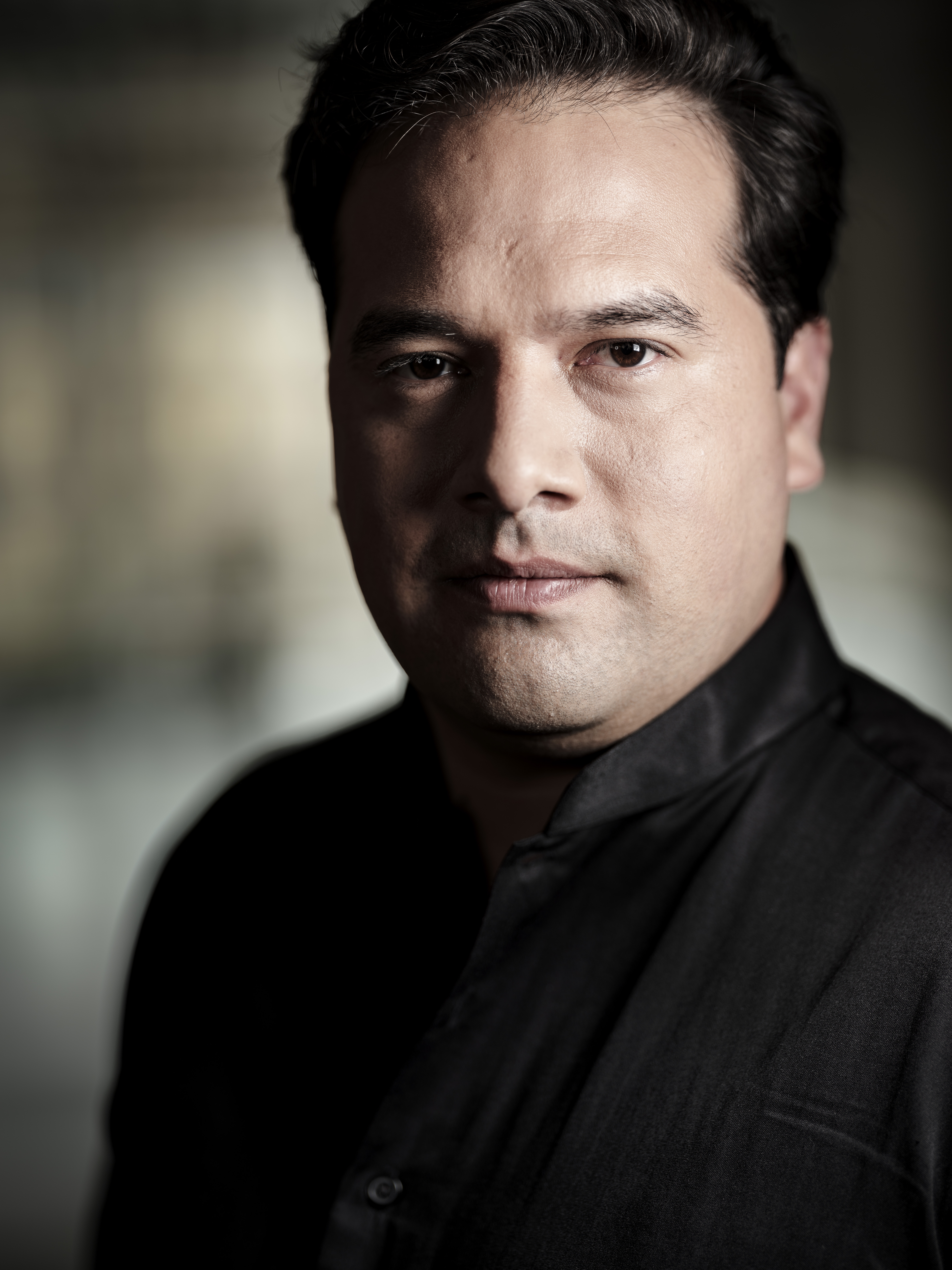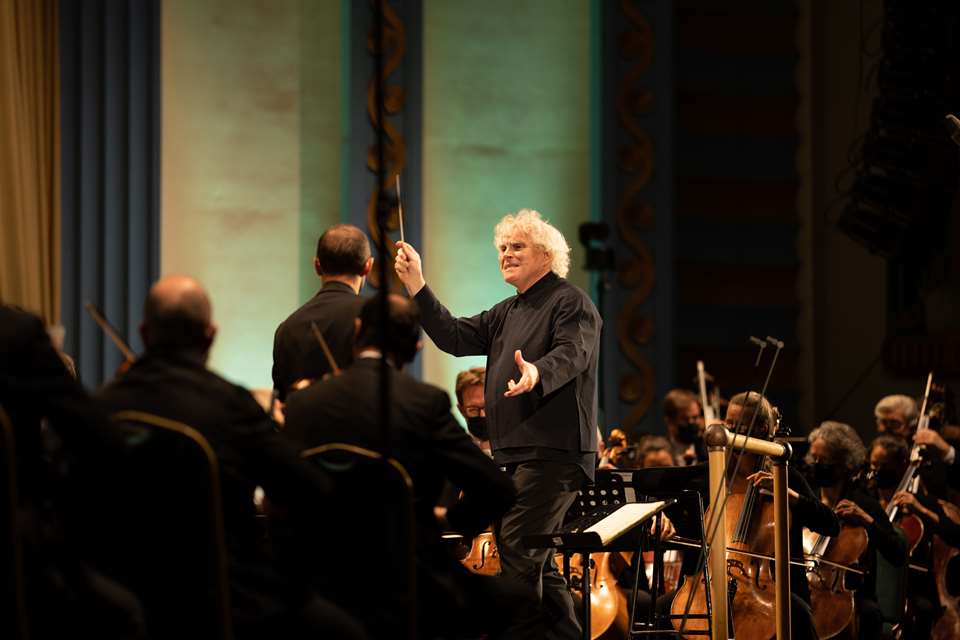Making a beeline for Bristol
Rebecca Franks
Wednesday, May 14, 2025
As Bristol Beacon announces a vibrant 2025-26 season, Rebecca Franks puts the venue in context, exploring what the city of Bristol has to offer alongside its flagship venue, from chamber music at St George’s to the ‘Gurt Lush’ Choir

![]()
The arts scene in Bristol, the largest city in the southwest of England, is thriving. That’s the view of Simon Wales, the new CEO of Bristol Beacon, (pictured right) the area’s revamped flagship concert hall. ‘Of course, I’m biased because I work here, but I think the hall really is one of the best there is,’ he says. ‘When I go backstage to thank the artists, they unanimously say it feels warm, inclusive and has a nice atmosphere.’
He is right that Bristol Beacon is an impressive venue, and since reopening after being closed for five years, it’s reclaimed its status as the hub for classical music in the city. While Bristol doesn’t have its own symphony orchestra, the Bournemouth Symphony Orchestra is resident at the Beacon and has long been a regular visitor; while the 18-concert strong 2025-26 orchestral season includes visits from the Royal Liverpool Philharmonic, Royal Philharmonic, City of Birmingham Symphony and London Symphony Orchestras.
‘My personal highlight next season is Elgar’s The Dream of Gerontius with the LSO. I was really keen to present a big choral masterpiece in this third season, so our audiences can hear what this hall can do for a large, full-size chorus,’ says Wales. ‘And I’m excited about the rebirth of the Beacon Hall organ, which has been completely reworked. It will be launched by Anna Lapwood, who will be playing it three times within the first six months.’
“We would love the Proms to be in Bristol forever, but of course there’s no guarantee”
Like most venues, funding in today’s current arts landscape is the big challenge. For its Arts Council NPO funding, the Beacon is part of a consortium with St George’s, the beautiful converted church on the edge of nearby Brandon Hill. ‘We programme independently but we have a close working relationship and it’s a very live discussion right now about how we can best join up what we’re presenting,’ says Wales. Scale is a big factor: while the 1,800-seater Beacon is ideal for orchestras and large-scale ensembles, the 580-seater St George’s is a great space to hear chamber ensembles, small orchestras and recitals.
![]() Simon Wales: 'I’m biased because I work here, but I think the hall really is one of the best there is' ©Tim Crocker
Simon Wales: 'I’m biased because I work here, but I think the hall really is one of the best there is' ©Tim Crocker


 ‘You can come and see international-standard artists at St George’s,’ Samir Savant, the venue’s CEO says. ‘We’ve just had the Tallis Scholars, who got a five-star review in The Guardian, we’ve got the pianist Angela Hewitt this autumn, the Takacs Quartet, and we continue our relationship with BBC Radio 3’s New Generation Artists.’
‘You can come and see international-standard artists at St George’s,’ Samir Savant, the venue’s CEO says. ‘We’ve just had the Tallis Scholars, who got a five-star review in The Guardian, we’ve got the pianist Angela Hewitt this autumn, the Takacs Quartet, and we continue our relationship with BBC Radio 3’s New Generation Artists.’
Last year, the BBC Proms came to Bristol for the first time, and the festival returns for another long weekend of events in August. ‘We had a really good response from audiences in the first year,’ says Wales. ‘And we’re really happy with the programme we’re presenting this year. We’re doing everything we can to make sure the word is out there. We would love the Proms to be in Bristol forever, but of course there’s no guarantee. So please come and support it now, while we make the case for this becoming an ongoing presence.’
![]() Breaking ground: Bournemouth Symphony Orchestra and Kirill Karabits present the Proms at Bristol Beacon for the first time ©BCC/Giulia Spadafora
Breaking ground: Bournemouth Symphony Orchestra and Kirill Karabits present the Proms at Bristol Beacon for the first time ©BCC/Giulia Spadafora
“We’re told that there are more choirs in Bristol per capita than anywhere else in the country”
Opening the residency is the Paraorchestra, the game-changing ensemble supporting disabled and neurodivergent musicians set up by conductor Charles Hazlewood after the Paralympics in 2012. Based in Bristol, the group very much sees the city as its home and performed at the launch of the newly refurbished Beacon in 2023. It made its Proms debut last season and this year joins forces with folk duo The Breath. The Danish National Vocal Ensemble, meanwhile, will be at St George’s.
![]() The Paraorchestra presents 'The Virtuous Circle' at Bristol Beacon at last year's Proms ©BCC/Soul Media/Giulia Spadafora
The Paraorchestra presents 'The Virtuous Circle' at Bristol Beacon at last year's Proms ©BCC/Soul Media/Giulia Spadafora
Britten Sinfonia is one of the visiting orchestras, while the other is the Orchestra of Welsh National Opera – a welcome appearance while the company’s traditional turns at the Hippodrome have been shelved in the wake of funding cuts. That’s been a huge loss – no-one else is putting on opera on this scale in the city, but the company is scheduled to return this autumn with fully-staged productions of Puccini’s Tosca and Bernstein’s Candide, albeit for just one performance of each. There are also visits from OperaUpClose, often to the Tobacco Factory, one of Bristol’s theatres, south of the harbour – its most recent performance ‘Opera Cocktail’ used arias by Puccini, Mozart, Verdi others to tell a contemporary story. Local amateur company Bristol Opera has been around for over a century, after being founded in 1923, and puts on a fully-staged opera every spring. Next up, Smetana’s The Bartered Bride in 2026.
Other regular fixtures on the scene include the Bristol Ensemble, whose repertoire spans from the 17th century to the present day and the Bristol Cathedral Choir, which comprises choristers, choral scholars and lay clerks. Singing is a key part of Bristol’s musical identity. ‘We’re told that there are more choirs in Bristol per capita than anywhere else in the country,’ says Savant. ‘I’ve started the Festival of Voice and through that Sing for Happiness [a wellbeing research project]. We’re in the third iteration and by the time we finish on 21 June, which is international Make Music Day, 1,000 adults will have been through this programme.’
 Firm friends: St George's (pictured) has partnered with Bristol Beacon to present 'joined up' programming
Firm friends: St George's (pictured) has partnered with Bristol Beacon to present 'joined up' programming
When it comes to choirs, singers are spoilt for choice. At one end of the spectrum is Bristol Choral Society, conducted by Hilary Campbell, a large, auditioned group that never stints on ambition: its latest concert features Beethoven’s Missa Solemnis. There are high-level chamber choirs, like the Exultate Singers. And there’s a wealth of non-auditioned choirs, who sing everything from folk songs and sea shanties to musicals – from the Bristol Show Choir to the Gurt Lush Choir, named in honour of one of the region’s iconic catchphrases. Orchestras are plentiful too, playing repertoire from classical music to reggae. Keen amateurs can pick from the Bristol Metropolitan, Bristol Concert, Bristol Millennium, Bristol Chamber and Bristol Symphony Orchestras, as well as the Bristol Classical Players and New Bristol Sinfonia.
A collaborative ethos sets Bristol apart, says Savant. ‘Not just between St George’s and the Beacon but between us and the NHS and the universities.’ One such project is called MyWorld and involves both Bristol University and the University of the West of England, as well as several other partners. They set up research concerts during which the audience and artists were kitted up with heart monitors. Some watched the performance live in the hall at St George’s, others were in a studio, watching it live on screen, and another group will watch a recording of it. ‘We’re trying to ascertain whether the experience of listening to music live in the same space as the musicians are performing it is different from watching it on screen,’ explains Savant. ‘My main competitors are Netflix, Spotify and apathy, so obviously the implications are huge.’ And, adds Savant, ‘It’s only in Bristol that I can imagine something like this coming together.’
